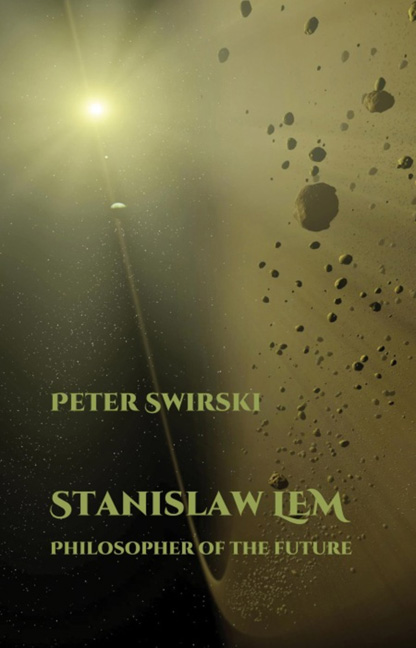Cogito Ergo Lem
Summary
“I'm a hard nut to crack for literary critics”, snickered Lem during a 1984 interview, openly dissatisfied with their incapacity to mete out cognitive justice to his works. In 1992, during two days of discussions that would eventually form the core of my A Stanislaw Lem Reader (1997), he let his frustration ring even louder. “I prefer to answer interdisciplinary inquiries from the borderline of philosophy of science and literature rather than get bogged down in questions concerning my own (science) fictional works”, he told me point blank. “The former approach is certainly more fruitful” (117).
It is true that humanists face a major challenge when entering the critical lists with Lem. They square off not only with a virtuoso storyteller but also with a science–savvy philosopher who, more often than not, saw his novels as narrative models of the sociocultural constants and statistical aberrations that bedevil our civilization in its inexorable technoscientific evolution. Given Lem's intellectual demands—exemplified by his lifelong mantra that not Kelvin, Tichy, or Pirx, but knowledge was the hero of his books—it is not surprising that few critics earned passing grades for their endeavours.
The example of Jerzy Jarzębski, the Polish editor of Lem's Collected Works (1998), is representative in this regard. Turning the tables on the critic, Lem did not pull punches when he panned him for being,
unable to perceive my work from the “epistemological angle”, for it is a side ingrained in biology, which is rather alien to him. Nota bene, Jarzebski [sic], acquainted with my “empirical theory of literature”, The Philosophy of Chance, and “Markiz w Grafie” (in the last of which I applied game theory to a genological analysis of De Sade), did attempt to apply the method I proposed (the game theory's structure, the structure of dynamic conflicts, and not the static structures of the classic structuralism) […] but I can tell from the content that he has no idea of what game theory is all about, that the notions of saddle–like payoff function and such, zero–sum and non–zerosum games, etc.
- Type
- Chapter
- Information
- Stanislaw Lem: Philosopher of the Future , pp. 1 - 6Publisher: Liverpool University PressPrint publication year: 2015



